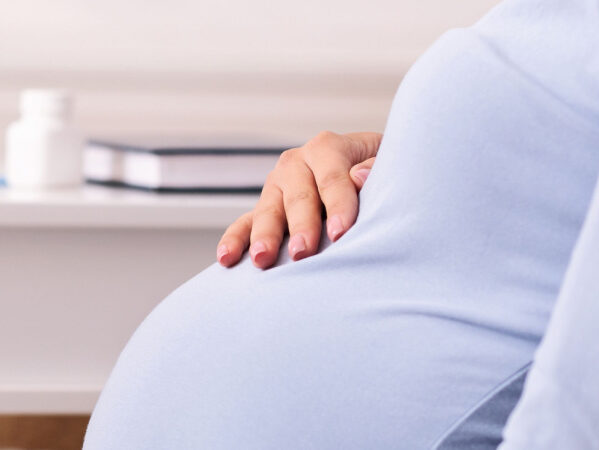Why Is Xanax Typically Prescribed?
Xanax (alprazolam) is a powerful sedative and benzodiazepine drug that is often prescribed for anxiety disorders and panic disorders. Xanax comes with the risk of physical and psychological dependence, which can cause conflicts for an individual who is considering getting pregnant or currently pregnant.
Anxiety and panic disorder symptoms do not disappear when a woman is pregnant, so if you have been taking Xanax, talk to your doctor about alternatives during pregnancy. It’s generally best to pursue natural remedies for undesirable symptoms associated with anxiety and panic disorders in lieu of taking Xanax or other benzodiazepines during pregnancy. Other medications may also be recommended depending on the specific circumstances.
Why Isn’t Xanax Safe to Take During Pregnancy?
Xanax is considered a pregnancy category D drug. As a result, taking Xanax can harm pregnancy in multiple ways.
Xanax exposure during any period of pregnancy can result in various problems. For instance, taking Xanax during the first trimester (the first one to three months of pregnancy) increases the chances of birth defects like cleft lip or cleft palate in addition to other serious birth defects.
Taking Xanax later on in pregnancy (during the second and third trimesters) can result in withdrawal syndrome for the baby after birth.


Drug Detox While Breastfeeding
Additional Risks of Taking Xanax During Pregnancy
Taking Xanax while pregnant can cause the baby to develop heart and respiratory complications as well as eating problems and dehydration.
Benzodiazepine use during pregnancy can also lead to floppy infant syndrome, which results in the baby having weaker muscles than normal. As a result, the baby may have trouble controlling their arms, legs, and head.
In addition, taking Xanax during pregnancy can cause the baby to have a low Apgar score. The Apgar score is a metric doctors use to evaluate newborn health at one and five minutes after birth as well as the baby’s resuscitation response.
Low Apgar scores often entail problems, such as respiratory issues, heart rate problems, and problems with body temperature.
Alternatives to Xanax During Pregnancy
In some instances, doctors may recommend alternative medications to use for anxiety during pregnancy.
Doctors weigh the benefits of a particular medication against the potential risks. If the benefits to the mother outweigh the potential risks to the pregnancy, the medication may be prescribed. While certain antidepressants may be prescribed during pregnancy, benzodiazepines like Xanax do not fit this category.
Instead, your doctor may recommend natural approaches like these:
Maintain Healthy Habits
Eat healthy foods, stay hydrated, and remain physically active, as long as activities are approved by your doctor. This combination of approaches can reduce anxiety symptoms.
Focus on getting restful sleep
Shut off electronics and avoid blue light before bedtime to promote a good sleep schedule. Sleep problems and insomnia have both been linked to anxiety and depression.
Try yoga and mindfulness practices, such as meditation
They have been shown to significantly improve anxiety during pregnancy. They have also been shown to improve undesirable symptoms associated with pregnancy, such as lethargy and depression.
Consider therapy
Therapeutic approaches like cognitive behavioral therapy (CBT) may be particularly useful. CBT is a form of talk therapy that has grown in popularity over the years. It has been shown to relieve symptoms associated with anxiety and/or panic disorder.
Getting Help for Xanax Addiction While Pregnant
If you are dealing with any kind of substance misuse, including Xanax abuse, during pregnancy, it’s important to get help as soon as possible.
Professional addiction treatment is even more important during pregnancy since medical care is needed for detoxification to ensure the safety of both mother and baby. Benzodiazepine withdrawal during pregnancy is considered high-risk, so it must be closely managed by a physician.
Therapy is essential to manage the underlying issues that led to substance abuse, whether it began before or during pregnancy. In therapy, pregnant women can acquire tools needed to effectively deal with triggers to substance use, so they don’t return to benzo misuse.
It’s also crucial to set up an effective support system. Pregnancy comes with unique stresses, and it’s common for anxiety to spike during this time. Without proper support in place, relapse is likely.
- A Review of Alprazolam Use, Misuse, and Withdrawal. (February 2018). Journal of Addiction Medicine.
- Pregnancy and Neonatal Outcomes After Exposure to Alprazolam in Pregnancy. (April 2022). Frontiers in Pharmacology.
- First-Trimester Exposure to Benzodiazepines and Risk of Congenital Malformations in Offspring: A Population-Based Cohort Study in South Korea. (March 2022). PLOS ONE.
- Clinical Presentation and Management of Neonatal Abstinence Syndrome: An Update. (December 2013). Research and Reports in Neonatology.
- Apparent Life-Threatening Event following Maternal Use of Temazepam During Labour. (June 2014). Case Reports in Pediatrics.
- Pregnancy and Delivery Outcomes Following Benzodiazepine Exposure: A Systematic Review and Meta-Analysis. (December 2020). The Canadian Journal of Psychiatry.
- Xanax Or Zoloft For Moms-To-Be: A New Study Assesses Safety. (September 2017). NPR.
- The Effects of Mindfulness-Based Yoga During Pregnancy on Maternal Psychological and Physical Distress. (May–June 2009). Journal of Obstetric, Gynecologic & Neonatal Nursing.
- Managing Benzodiazepine Withdrawal During Pregnancy: Case-Based Guidelines. (April 2014). Archives of Women’s Mental Health.
- Associations of Maternal Use of Benzodiazepines or Benzodiazepine-like Hypnotics During Pregnancy With Immediate Pregnancy Outcomes in Norway. (June 2020). JAMA.











